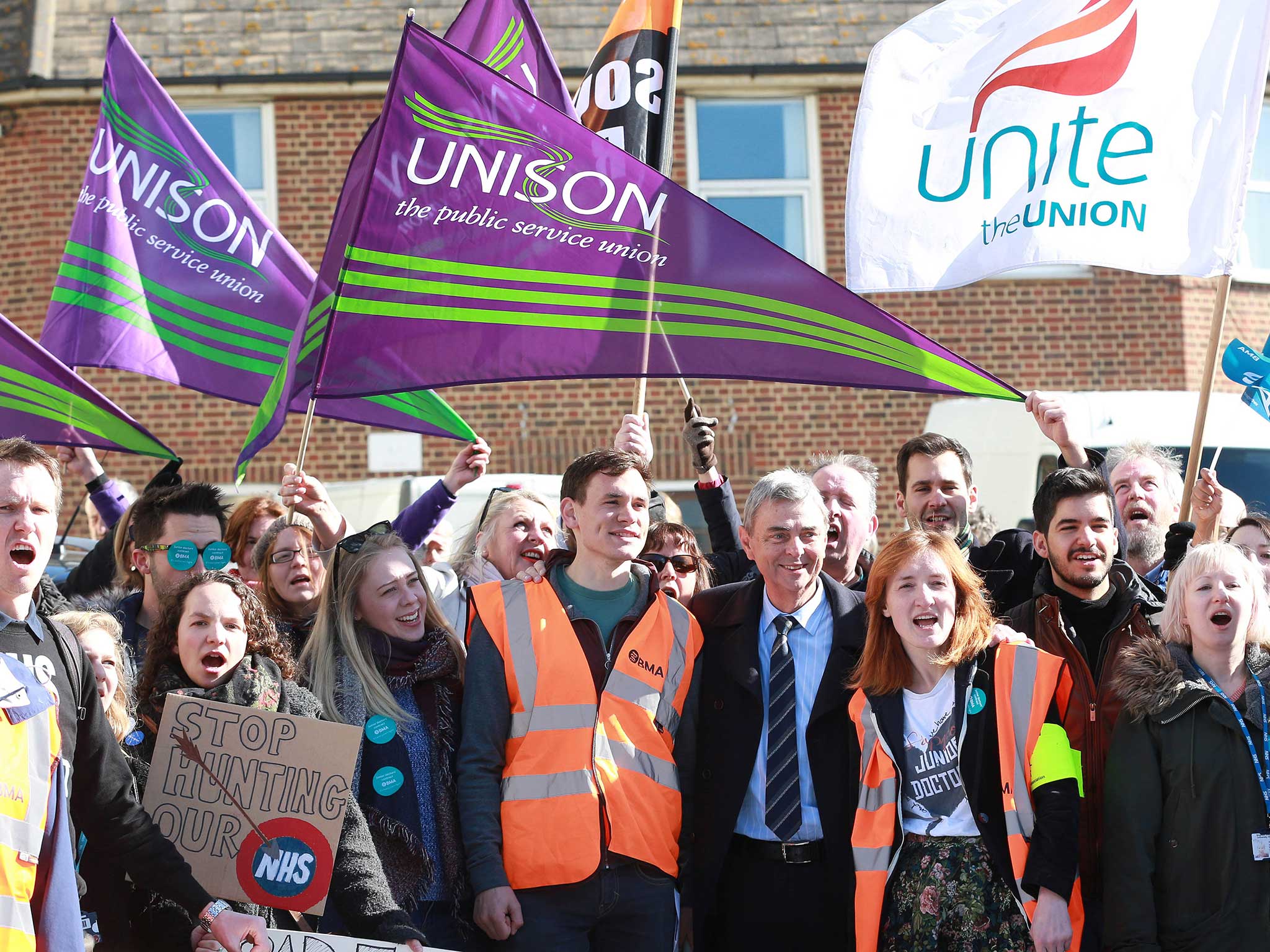Junior doctors strike: Majority of public support doctors ahead of first full walkout, poll shows
Junior doctors begin an all-out strike from 8am on Tuesday, and will resume the strike on Wednesday

Your support helps us to tell the story
From reproductive rights to climate change to Big Tech, The Independent is on the ground when the story is developing. Whether it's investigating the financials of Elon Musk's pro-Trump PAC or producing our latest documentary, 'The A Word', which shines a light on the American women fighting for reproductive rights, we know how important it is to parse out the facts from the messaging.
At such a critical moment in US history, we need reporters on the ground. Your donation allows us to keep sending journalists to speak to both sides of the story.
The Independent is trusted by Americans across the entire political spectrum. And unlike many other quality news outlets, we choose not to lock Americans out of our reporting and analysis with paywalls. We believe quality journalism should be available to everyone, paid for by those who can afford it.
Your support makes all the difference.The majority of the public supports the junior doctors' strike, a poll has found.
The Ipsos MORI poll, conducted for BBC News, found 57 per cent of adults in England support the strike.
Junior doctors began an all-out strike from 8am on Tuesday, and will resume the walk-out on Wednesday.
The strike has already resulted in the cancellation of 125,000 operations and appointments.
As the strike got underway, there was an outpouring of support for the doctors across social media, while an informal poll on Sky News showed viewers backed the action by more than 70 per cent.
And the overwhelming opposition to Health Secretary Jeremy Hunt over the issue appears to have prompted him to tell the BBC it will be his "last big job in government".
The survey of 861 English adults also found public support for an all-out strike, where no emergency care being provided, is higher than was initially suggested when the same question was asked in January.
While 57 per cent support the current walkout, just 44 per cent said they would when asked in January.
However, support for this round of strike action is slightly lower than for previous strikes, when emergency care was not affected.
Nearly one in five (18 per cent) strongly oppose the full walkout.
An increasing number of people see both parties at fault for the continuing dispute, with over a third (35 per cent) blaming the doctors and the Government, up from 28 per cent in March and 18 per cent in February.
Over half (54 per cent) now say the Government is more at fault for the dispute continuing this long, down from 57 per cent in March.
The number saying the junior doctors are more at fault has also fallen to 8 per cent from 11 per cent in March.
On Sunday, Health Secretary Jeremy Hunt refused to trial an alternative contract in exchange for cancelling the strike.

The Government says the contract will help implement the Conservatives' manifesto pledge of a "seven-day NHS".
Junior doctors say the new contract - which redefines what are considered "anti-social" working hours - is unsafe for patients, as doctors will have to work more unsocial hours.
The dispute has become increasingly bitter and has seen junior doctors go out on strike for the first time in 40 years.
Mr Hunt has also been criticised by the director of the World Health Organisation (WHO), who says the contract contradicts the status of women set out by the United Nations.
Commenting on the poll's findings, Anna Quigley, Head of Health Research at Ipsos MORI, said: “We’re seeing today that support for the junior doctors is still prevalent among much of the public, even when emergency care is withheld.
"However, support is not as high as when we were polling for the strikes where emergency care was provided, as we suggested might happen in January.
"However, the erosion of public support has not been as stark as the January polling suggested, and the public still have some patience left for the junior doctors’ cause.”
Join our commenting forum
Join thought-provoking conversations, follow other Independent readers and see their replies
Comments